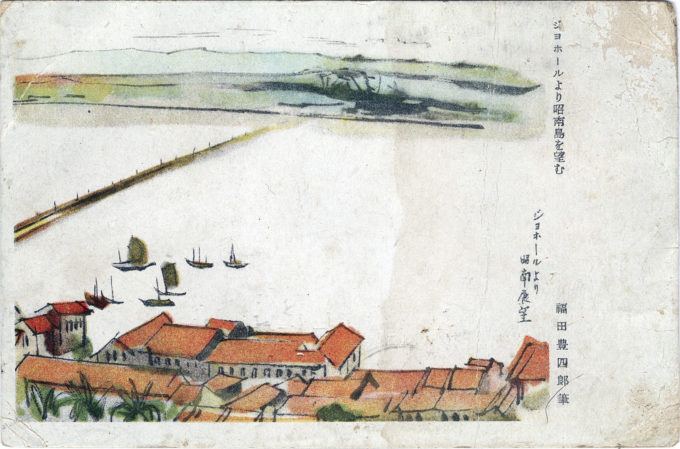“Moshe Hai Sion was 15 when Singapore fell to the Japanese on Feb 15, 1942. Able-bodied adult Jewish men were among those rounded up and interned at Changi Prison but he avoided the internment.
“‘I was too young to be a threat,’ Mr Hai Sion, now 90, recalled. He was then living in a shophouse in Short Street with his father, a watch spare parts trader, and a younger sister.
“His father, who was in his 60s, was too old to be interned but the family had to wear white armbands in public which identified them as Jews. Mr Hai Sion stopped studying at St Andrew’s School to help with his father’s business. But the family got rounded up again in March 1945.
“They were taken to the Sime Road Internment Camp and spent about six months there until the Japanese surrender in September. The Japanese set up the camp at what was a Royal Air Force base to hold mostly Europeans and Eurasians.
“‘We heard Germany wanted Japan to kill the Jews in Singapore but the Japanese said no because the Jews here were no threat to them,’ he said. ‘We were locked up instead.’
“… ‘Life at the camp was hard. There was not enough food and we made mostly stew,’ he recalled. ‘Once a week, we would get a duck egg. We had to write our initials on the egg and give it to the kitchen to be cooked.'”
– “75 Years Since Singapore Fell: ‘I hope killing of people in war doesn’t happen again'”, The Straits Times, February 12, 2017

Propaganda postcard, c. 1943. Elevated view of Johor Bahru (foreground), Malaya, and the Causeway (left) connecting the British peninsular colony of Malaya with its island colony of Singapore, and the then-rural Woodlands district of Singapore in the distance.
See also:
Conquest of Singapore commemorative postcard, 1942
Mr. Tan Hwee Hock, 87: “I was 13 when the Japanese invaded. Obviously, we were all very frightened of them. We did not know how to react. They were completely different to us.
“I mostly stayed home and tried to mind my own business.
“At the time, you needed a purple-ink ‘chop’ on your hand to move about in public. That chop was very precious.
“Whenever you walked past a Japanese sentry, you had to bow as a show of respect. If you didn’t, you risked being beaten to death.
“When I was 15, I found work as a laboratory assistant to the Japanese who were doing scientific studies on metabolism.
“With my $2.50 per day wages, I would collect rice rations. We carried them in cigarette tins.
“That rice was more precious than the wages itself.
“Sometimes, I would get a whiff of soft, white bread baked fresh in the bakery. These loaves were only for the Japanese.
“All we had was hardened slabs of cornflour mixed with foul-smelling oil.
“At home, my father turned our garden into a plot for growing sweet potato and tapioca, which we fertilised with our own urine.
“… The hallmark of my generation is frugality.
“We needed to be frugal to survive, there was no other way.”
– “Surviving the Japanese Occupation”, The New Paper, February 15, 2017

